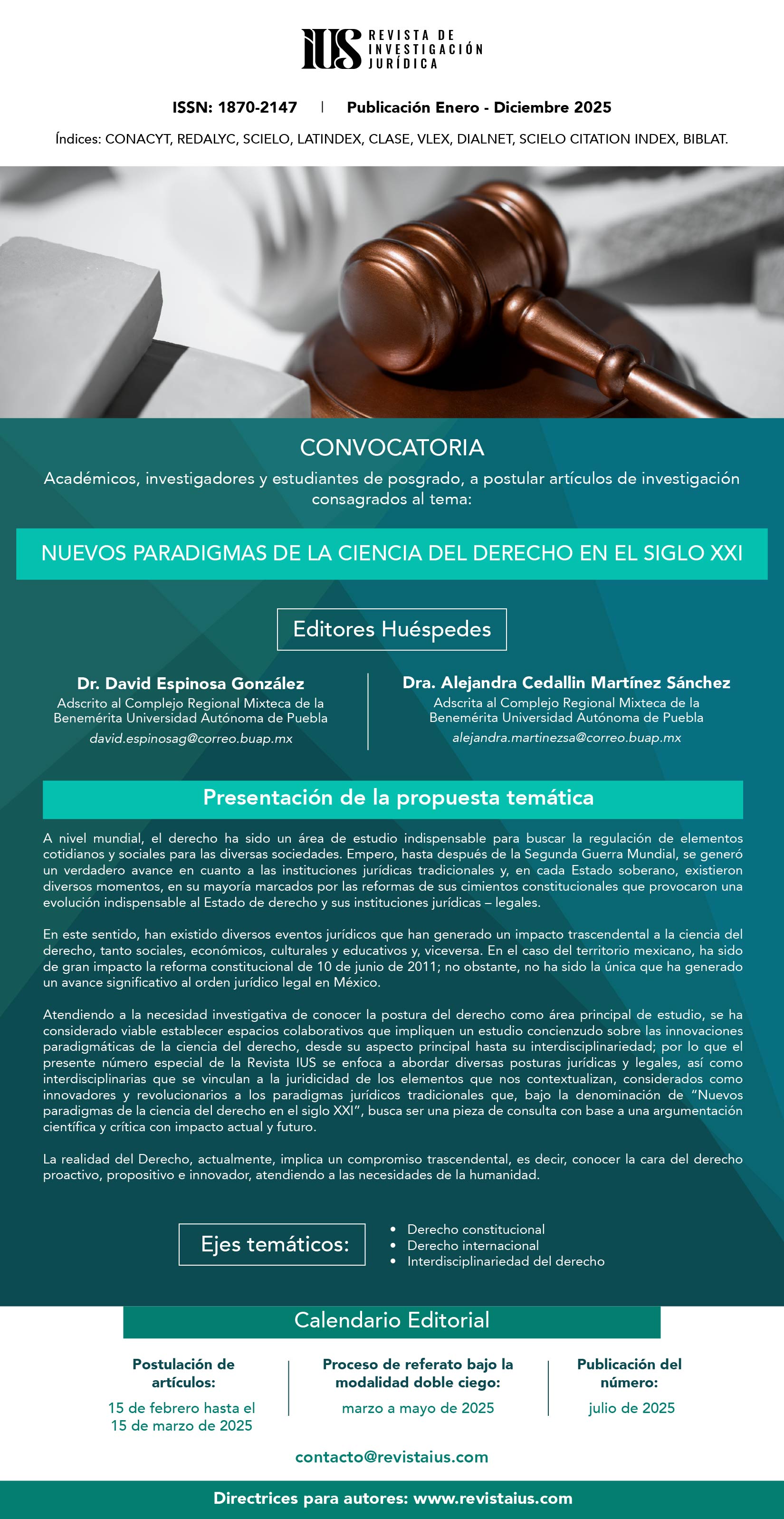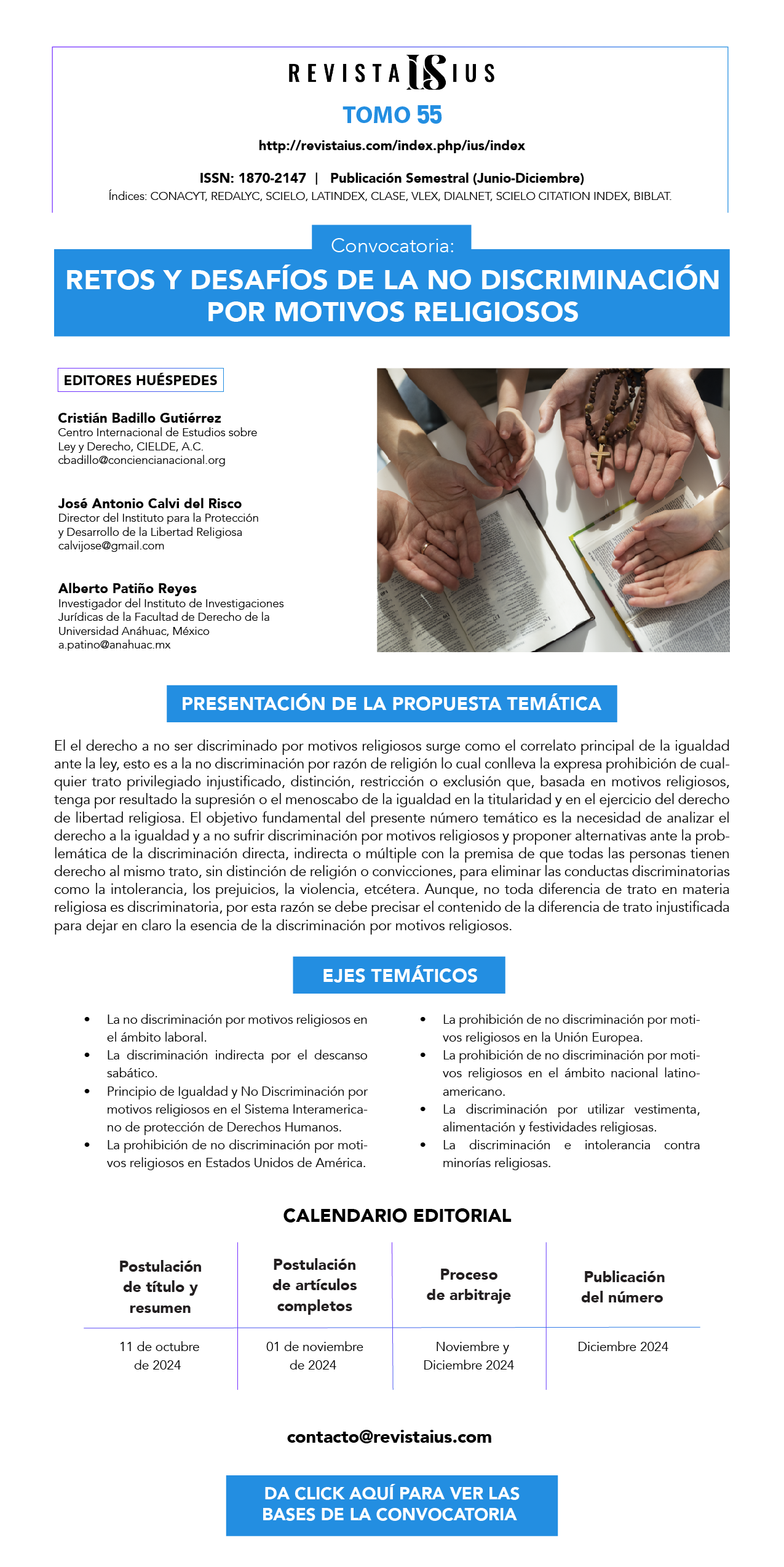Las regulaciones iusprivatistas para el contrato de trabajo internacional como forma de protección al migrante: apuntes desde Cuba
DOI:
https://doi.org/10.35487/rius.v14i45.2020.505Keywords:
migración, trabajo, contrato, Cuba, derecho.Abstract
En los últimos años se han producido cambios notables en el contexto económico internacional. Se abre camino un mundo en el que las economías cada vez están más integradas. Los avances tecnológicos y las reformas aperturistas incrementan el crecimiento del comercio, los flujos de inversión, todo lo cual se traduce en un incremento de la migración, que impacta a las sociedades en importantes campos como el laboral, por ello han de buscarse mecanismos convencionales y otros cuya función principal no es la de tutela, para la protección de los migrantes: es el caso del contrato de trabajo internacional.
Downloads
References
NIBOYET, J. P., Derecho Internacional Privado, Editora Nacional S.A., México, 1951.
PÉREZ HECHEMENDÍA, M. L. y ARZOLA FERNÁNDEZ, J.L., Expresiones y términos jurídicos, Oriente, Santiago de Cuba, 2009.
PÉREZ VERA, E., Derecho Internacional Privado, 8ª edición, Universidad Nacional de Educación a Distancia, Madrid, 1998.
PÉREZ VERDIA, L., Tratado Elemental de Derecho Internacional Privado, Porrúa, México, 1908.
PINA, R., Diccionario de Derecho, Porrúa, México, 1978.
ROUGÉS, F. M., El estudio de la nacionalidad, naturalización y condición jurídica del extranjero: la problemática en la ubicación de su estudio (en línea), disponible en: http//:www.agroindustrial.com., (consultada el 15/4/2014, 1:p.m.).
SÁNCHEZ DE BUSTAMANTE Y SIRVEN,A., Derecho Internacional Público, Cultura, La Habana, 1933.
SÁNCHEZ, L., FERNÁNDEZ ROZAS, J.C., et al., Legislación Básica sobre Extranjeros, Tecnos S.A., Madrid, 1987.
Downloads
Published
Issue
Section
License
Revista IUS, published by the Legal Sciences Institute of Puebla A.C., is distributed under the Creative Commons Attribution-NonCommercial 4.0 International (CC BY-NC 4.0) license.
We authorize collaborators to upload a copy of their published work on their personal websites or any Open Access repository, provided that Revista IUS is specifically cited as the original source, indicating the year and issue of the respective example and adding the link to the webpage on which this publication can be freely consulted in toto and without charge: http://www.revistaius.com
Readers are free to:
Share, copy and redistribute the material via any medium or format.
The licensor cannot revoke these freedoms as long as you follow the license terms.
Under the following terms:
Attribution: You must give appropriate credit, provide a link to the license, and indicate if changes were made.
You may do so in any reasonable manner, but not in any way that suggests the licensor endorses you or your use.
NonCommercial – You may not use the material for commercial purposes.
If you remix, transform or build upon the licensed material, its distribution is not permitted.
Charges for managing articles: Revista IUS will not charge for receiving, processing or publishing articles (Article Processing Charge, or APC) submitted by authors.





